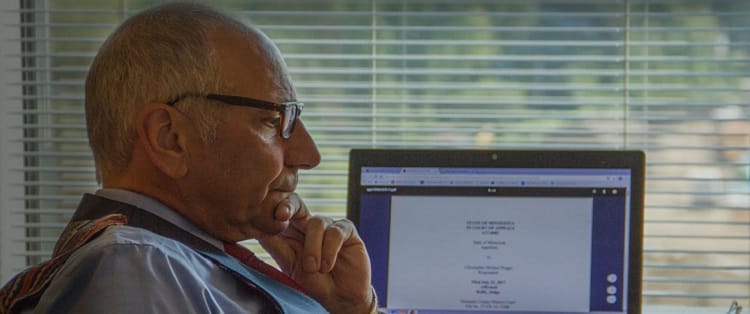Helping You Move On With Your Life After A Conviction
If you were convicted of a crime, you are likely well aware of the impact it can have on your life. Even after completing the ordered term — whether it was prison, parole or probation — a conviction that remains on your record can make it difficult to move on with life and become a productive member of society. Recently, the state of Minnesota enacted a law that could positively impact people who find themselves in this situation.
When most people face a criminal charge they are most likely concerned with the penalties that will be leveled at them by the court. While prison, parole and probation are serious consequences, once complete, they are over. A conviction left on a criminal record, however, could make it difficult to find a good job, or a place to live, for years to come. This is because convictions generally appear when a prospective employer or landlord runs a routine background check.
What Convictions Qualify For Expungement?
Not every criminal conviction will qualify for an expungement. In addition to misdemeanors and gross misdemeanors, some felonies may be expunged as well. Whether the crime you were convicted of committing will qualify, and how long you will have to wait to seek an expungement, depends on the nature of the crime.
- Petty misdemeanors/misdemeanors — You must wait two years after the probation to which you were sentenced ends.
- Gross misdemeanors — These crimes may be expunged four years after you are considered to be “off paper.”
- Felonies — While not all felonies qualify for expungement, currently it may be available for 50 Level I and Level II felonies. You must wait five years after the end of your sentence to expunge these nonviolent felonies.
Regardless of the level of the crime, ultimately, the court will weigh the need of the person making the request against the interest of the government to hold onto the record. Accordingly, if you were convicted of shoplifting as a teenager, you are more likely to have your record expunged than if you were convicted of a more serious offense.
Discuss Your Options With Our Attorney Today
Taking the time to work with a lawyer to have your criminal record expunged could lead to a better future. To learn more about whether this could be an option for you, contact attorney Matthew J. Mankey of the Mankey Law Office. Based in Minneapolis and the western suburbs, he can be reached 612-424-9454, or online.
